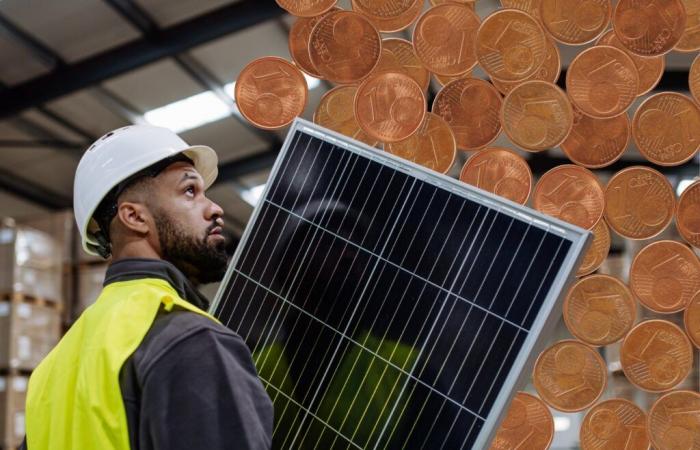Illustration: Getty, modified by RE.
The global solar panel market is experiencing a new phase of spectacular price decline, falling for the first time below the threshold of 6 euro cents per peak watt (Wp).
According to Leen van Bellen, Head of Business Development for Europe at Search4Solar, solar modules have crossed a historic threshold, reaching €0.055/Wp on the FOB market (free-on-boardexcluding taxes, insurance and transport costs) in China in early November. Such a drop marks a turning point for the global solar industry, where the costs of photovoltaic panels have never been lower.
This price drop is attributed to several factors. First of all, “Some suppliers are keen to reduce their stock, which has led to extremely competitive pricing. Whoever lowers prices first creates an impulse effect that encourages purchases, putting you ahead of the others” he explains to PV magazine. Then, advances in supply chain efficiency, high production levels contribute to this dynamic and increased competition promotes this drop in prices. Probable state subsidies would also allow Chinese manufacturers to offer prices that are very difficult to compete with in Europe.
Also read
Chinese companies subsidized to win the market for a solar power plant in Europe?
A trend nuanced by the European market
However, these record prices mainly observed in China are not fully reflected in France. In France, the prices of solar panels intended for individuals vary between 16 and 20 euro cents including VAT per peak watt (€/Wp), while for the professional segment, they vary between 12 and 14 euro cents excluding VAT/ Wc.
The price gap between European and Chinese panels can be explained by two factors. Therefore, it should be noted that the Chinese prices announced concern modules often manufactured by lower quality players, which mechanically lowers the average price. In Europe, so-called “Tier 1” manufacturers, recognized for their reliability and performance, offer their products at prices generally between 8 and 12 cents/Wp. Also, the costs linked to transport, storage and distribution are added, making photovoltaic modules more expensive for the end consumer.
Belgium






